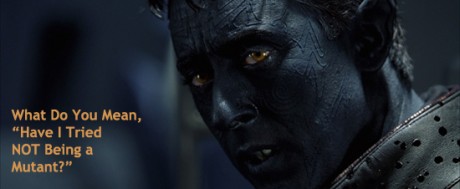Marvel Lawyers Argue Mutants Are Not Human
Posted by Ryan on January 10th, 2012“Mutants. Since the discovery of their existence they have been regarded with fear, suspicion, often hatred. Across the planet, debate rages. Are mutants the next link in the evolutionary chain or simply a new species of humanity fighting for their share of the world? Either way it is a historical fact: Sharing the world has never been humanity’s defining attribute.” – Professor X
Due to an interesting quirk with trade tariffs, Marvel found itself having to take the stance that the X-Men and other mutants are not human. Toys that are imported into the United States are taxed higher (12% versus 6.8%) if the toys are classified as “dolls” – which are toys that represent humans. In order to save some money, Marvel found itself arguing the position that toys like Wolverine are “representing animals or other non-human creatures (for example, robots and monsters).”
“While fictional characters in the Marvel Universe — the heroes at least — typically argue a position that says mutants and humans are not really different, and should be afforded the same rights, in the real world the company’s position is somewhat contrary.
In the non-fictional world, our world, Marvel is taking the position that mutants are not humans at all. But this isn’t an ideological or a moral stance. Instead, it is a financial one. Toys manufactured in other countries and imported into the US are subject to taxes, but those taxes are lower if the toys represent non-human characters.”

January 10th, 2012 at 7:02 pm
Is a mutant 3/5 of person?
January 11th, 2012 at 3:42 am
Lawyers are not human.
January 11th, 2012 at 3:50 pm
Next comes the concentration camps. Magneto was right!
January 11th, 2012 at 6:48 pm
I’m a girl and a lawyer, and I listen to the podcast. Marvel will probably never employ me, and I’m all for finding legal ways not to pay taxes. Correct me if I’m wrong though. Aren’t all humans mutated in some way when DNA passes from generation to generation?